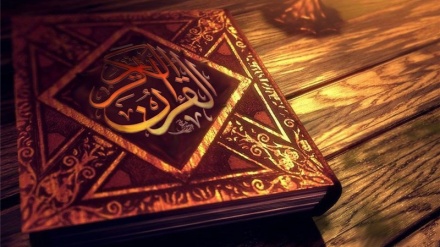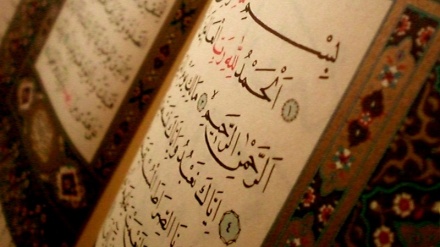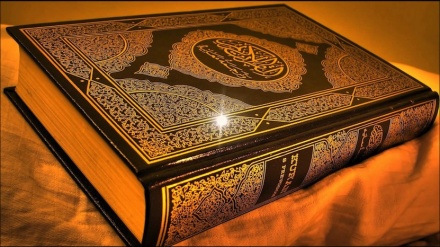Path towards Enlightenment (1053)
Welcome to our latest episode of “Path towards Enlightenment”, which is an endeavour to make you and us familiar with an easy and fluent explanation of God’s Final Scripture to all mankind, the Holy Qur’an that was revealed to the Last and Greatest of all Messengers, Prophet Mohammad (Blessings of God upon him and his progeny).
Last week we started explanation of “Surah al-Qiyamah”, and will complete it today. The 75th in order of compilation of the Holy Qur’an, it has 40 Ayahs and was revealed in Mecca. The title means “The Day of Resurrection” or “The Rising”. It opens with the Almighty Creator’s emphatic oath “By the Day of Resurrection”. It disproves the denial of the Day of Resurrection by unbelievers through a convincing description of God’s Infinite Power of creation of everything in an exquisite manner from nothing, which is ample proof of restoration of the same thing or person in its original form long after destruction, death, decay and disintegration of bones into dust. In other words, the creation of mankind from a drop of semen as a token of Divine Omnipotence in recreating human beings after death is logical and beyond an iota of doubt. In short, the Surah makes mention of the happy and sorrowful fate of the good and evil doers.
According to a hadith the regular recitation of Surah al-Qiyamah and observing its inunctions shall enable the reciter to safely cross the Siraat or the Bridge to Paradise on the rim of Hellfire on the Day of Resurrection.
We start from where we left you last week, and here are Ayahs 31, 32, 33, 34, and 35:
“He neither confirmed [the truth] nor prayed;
“But denied [it] and turned away;
“And went swaggering to his family;
“So woe to you (disbelievers); woe to you;
“Again woe to you, woe to you;”
If you remember, our explanation of the previous Ayahs of this Surah last week, focused on the throes of death of a person or persons who deny the truth and the Day of Resurrection, while living a depraved life full of sins and unbridled pleasures on the assumption that there is no accountability for disobeying God and no punishment for refusing to fulfill religious obligations.
The Ayahs that we recited to you today further focus on the behaviour of the deniers of truth who neither believe in Resurrection nor the Day of Judgement as is evident by their sinful life. Such a person or groups of persons, not just scoff at the ritual prayers but in utter self-conceit arrogantly boast to family and friends of rejecting whatever they hear from God-fearing people, including the mission of the Prophets and the revelation of heavenly scriptures.
The deniers of God and the Day of Resurrection often try to humiliate the believers, whereas it is they who are destined for eternal damnation when Divine punishment overtakes them, as is clear by Ayahs 34 and 35 that decry woe to them – four times in succession. This is actually a warning to the disbelievers that the torments and the evil consequences of denial of truth in the purgatory and on the Day of Resurrection are more terrible than what would befall them during the brief mortal life of the transient world.
These Ayahs teach us the following points:
- Denial of truth and scoffing at the daily ritual prayers, as well as the negligence of this pillar of faith by those who claim to be Muslims is a sign of unbelief.
- For a believer, negligence of the daily obligatory ritual prayers is a sign of cardinal sin and denial of truth warranting punishment, even if such a person believes in God Almighty and the Day of Resurrection.
- The faithless consider themselves wise and learned, and they mock at the believers contemptuously, whereas they themselves are in manifest error and deserve severe punishment in both the life of the world and in the Hereafter.
In conclusion of this week’s episode of Path toward Enlightenment here are Ayahs 36, 37, 38, 39, and 40 of Surah al-Qiyamah:
“Does man suppose that he would be abandoned to futility?
“Was he not a drop of emitted semen?
“Then he became a clinging mass; then He (God) created and proportioned [him];
“And made him of the two genders – the male and the female;
“Is He (God) able to revive the dead?"
These Ayahs are arguments against self-conceit and aimlessness of life without direction or purpose and no accountability whatsoever for the deeds done, whether good or evil, as those who deny the resurrection, think. The intention is to arouse consciousness and awareness of truth by emphasizing the goal behind creation on the basis of Divine Wisdom and the Omnipotence of the Almighty Creator by referring in a scientific manner to the development of the semen and the different embryonic stages leading to birth as one of the two genders, that is, male or female.
In other words, these Ayahs are a warning to those who do not believe in either the beginning or the end, that is, the Source of Creation and the Day of Resurrection. Such persons are oblivious of their own fate and do not care about the rights of others.
Therefore, is not God Almighty Who created the vast and wonderful universe, made Planet Earth hospitable for life, and designed the human being as the best of creation, capable of resurrection or reviving the dead to life in the original form even after the bones had been scattered and reduced to dust, especially since our each and every organ has a particular goal, such as eyes for seeing, ears for hearing, heart for pumping food, oxygen, and water to all the cells of the body, and even the fingerprints, which differ from person to person?
From these Ayahs we learn that:
- To think that life ends with death and decaying of the corpse into soil with no prospect of resurrection, is nothing but irrationality and illogic.
- The All-Wise God has created the world with purpose, and therefore accountability for every single deed when raised to life for judgement.
- The different stages of the embryo till birth as male or female are among the undeniable proofs of Divine Wisdom and power to revive the dead.
- The balance between male and female in human communities is another sign of God's Omnipotence.
RM/AS/ME


